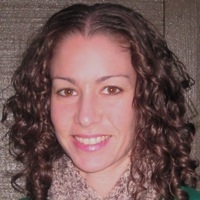Alison Nurok
Associate Laboratory Professor of Biology

- Office
- McCardell Bicen Hall 373
- Tel
- (802) 443-5871
- anurok@middlebury.edu
- Office Hours
- Spring 26: Wednesdays 11-12:30 and Thursdays 11-12
I teach ecology and evolution through hands-on, active learning in the field and in the lab.
My previous research focused on how anthropogenic changes to the landscape affect bird populations. For example, how do grassland bird populations living in hayfields respond to mowing during the breeding season? Do birds benefit from wetland restoration in highly urbanized environments? But my curiosity is always evolving…..
Currently, I work with Biol0140 (Ecology and Evolution) students on exciting, long-term research projects in streams and forests. While we collect and analyze data on aquatic insect populations and tree communities, students engage with concepts in ecology and evolution, and learn how to answer important, pressing questions such as how might climate change impact stream ecosystems? We focus on current global issues such as antibiotic resistance in bacteria, conducting lab experiments where students can ‘see’ the role of natural selection in this process.
I believe there is no substitute for the learning that can take place in an outdoor or laboratory experience where we form a question, collect and analyze data, and critically think about what those data mean.
Courses Taught
BIOL 0140
Current
Ecology and Evolution
Course Description
Ecology and Evolution
In this introduction to ecology and evolutionary biology we will cover the topics of interspecific interactions (competition, predation, mutualism), demography and life-history patterns, succession and disturbance in natural communities, species diversity, stability and complexity, causes of evolutionary change, speciation, phylogenetic reconstruction, and population genetics. The laboratory component will examine lecture topics in detail (such as measuring the evolutionary response of bacteria, adaptations of stream invertebrates to life in moving water, invasive species and their patterns of spread). We will emphasize experimental design, data collection in the field and in the laboratory, data analysis, and writing skills. This course is not open to seniors and second semester juniors in the Fall. 3 hrs. lect./disc./3 hrs. lab
Terms Taught
Requirements
Publications
Seigel, Alison B. and Julie L. Lockwood. 2010. How increasing levels of private land enrollment in conservation agreements affect the population viability of grassland birds. Biodiversity and Conservation 19: 2343-2357
Seigel, A., C. Hatfield, and J.M. Hartman. 2005. Avian response to restoration of urban tidal marshes in the Hackensack Meadowlands, New Jersey. Urban Habitats 3: 87-116
